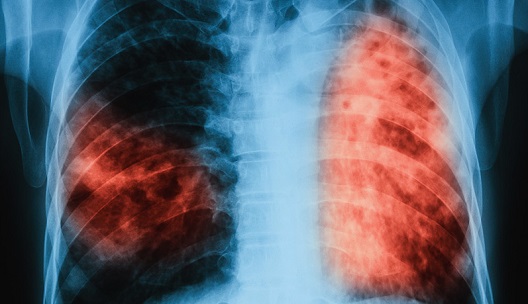New trials offer hope for TB treatment

Researchers at the University of St Andrews are one step closer to finding a shorter, more effective treatment for TB, according to a new paper published by The Lancet Infectious Diseases.
In an international study involving scientists from twelve African research centres, 365 patients were successfully treated for pulmonary tuberculosis using an antibiotic readily available in the country.
The trials – conducted in Tanzania and South Africa – have been described as an ‘important step’ towards treating the disease quicker and more effectively than existing methods.
Professor Stephen Gillespie, one of the chief investigators of the study, said: “Tuberculosis causes 1.8 million deaths every year and many patients receive adequate treatment. Better treatment is essential however if we are to control or eradicate this disease. Our findings could be an important step toward a shorter and more effective treatment for TB.”
The PanACEA MAMS (PanAfrican Consortium for the Evaluation of Anti-tuberculosis Agents – Multi-arm, multi-stage) study involved testing enhanced doses of rifampicin – an antibiotic used to treat bacterial infections – in patients who were given one of four experimental doses compared with standard treatment.
The combination of moxifloxacin and 20 mg/kg rifampicin had a modest effect on the clearance of bacteria. However when increased to a dose of 35 mg/kg (three and a half times the current recommended dose) rifampicin was not only safe, but reduced the time taken for patients to clear the bacteria.
Professor Gillespie, Sir James Black Professor of Medicine at St Andrews, continued: “Rifampicin is a drug that people treating the disease in resource poor countries are familiar with which means that an enhanced dose of rifampicin could be implemented rapidly.
“The outcome of our trials is a really important result that shows there is hope of improving tuberculosis treatment, and that, by increasing the dose of rifampicin, we might be able to shorten therapy.
“This exciting result has been delivered only as a result of a collaboration with colleagues across the world working together for many years.”
The research was supported by the European Developing Country Clinical Trials Partnership and is published online by The Lancet.
Notes to new editors
The PanACEA team is a collaboration of researchers between the University of St Andrews, Radboudt University Medical College, Ludwigs Maximillian University Munich, University College London and twelve African centres.
The trial was performed at the Kilimanjaro Clinical Research Institute Moshi Tanzania, Mbeya Medical Research Institute, Mbeya Tanzania, Cape Town South Africa, Stellenbosch University South Africa.
The European Developing Countries Clinical Trials Partnership, based in Den Haag, funds research in poverty related diseases in sub-Saharan Africa.
Professor Gillespie is available for interview Friday am only via the press office – contacts below.
Issued by the University of St Andrews Communications Office, contactable on 01334 462530 or [email protected].
Category Research